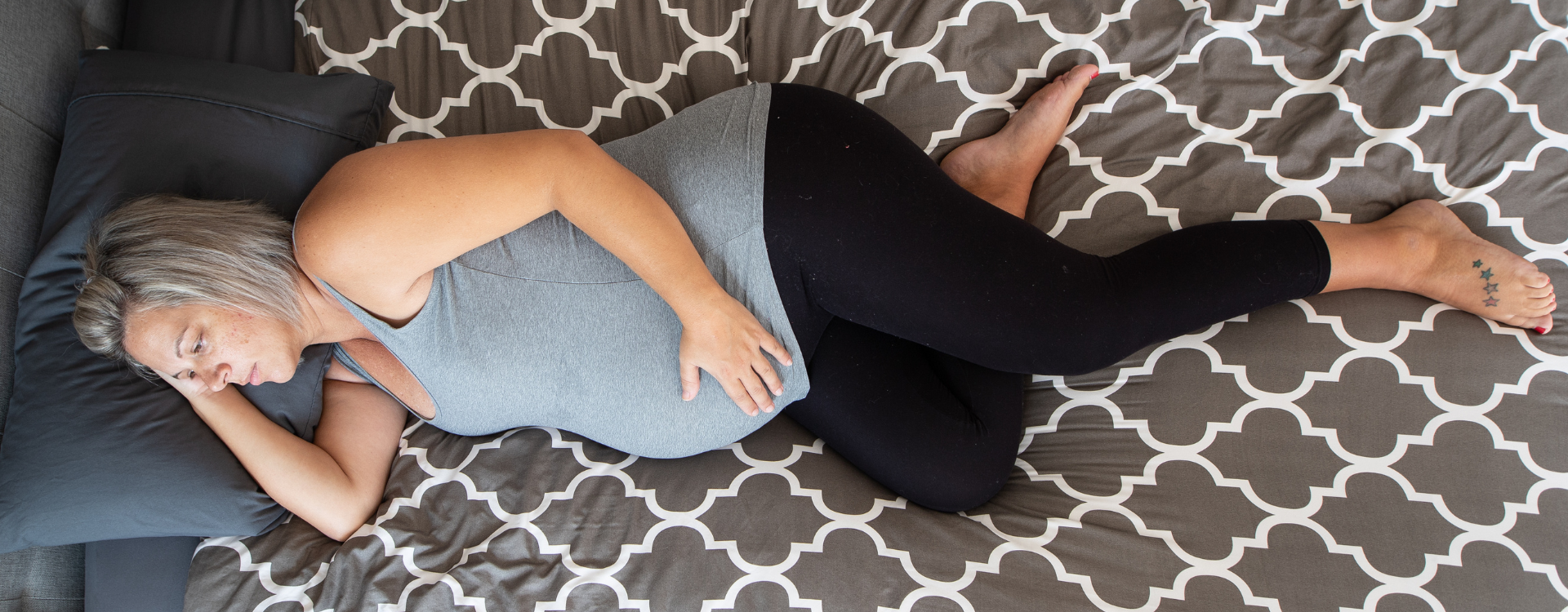The baby seems fussier than usual. Your 3-year-old is fighting bedtime like never before. And you yourself, mama, are more than a little on edge.
Is it a full moon or Friday the 13th? Or might our collective anxiety about the current COVID-19 pandemic have something do with it?
It’s totally normal to feel worried and tense right now, and for that to have a trickle effect. Let’s take a look at how you and your kiddos feed off of each other emotionally—and ways to steer everyone in a calmer direction.
Matching moods
Our kids need us for so many things: food, shelter, entertainment, cuddles, and Band-aids to name a few! Did you know they also need your help to manage how they feel? It’s a role that all caregivers, from parents to teachers to coaches, play as children develop into young adults.
We grown-ups can control our thoughts, emotions, and behaviors (well, most of the time). It’s called self-regulation, and it helps us get through each day of “adulting.” Because children can’t do this quite yet, they watch you to learn how they should behave, especially when they are out of sorts (called co-regulation). Co-regulation looks different depending on your child’s age, personality, and development. It will also vary from situation to situation.

Ways to cope
As a parent, you often set the tone for the entire household. Even the littlest babies can pick up on the vibes in your voice and body language.
Coping with the coronavirus situation will not only preserve your own sanity, but help you bring your best self to parenting. Here are eight ways ways to cope with stress and support your family during particularly stressful times.
1. Check in on your feelings. Lose your cool when dinner burned on the stove, or your toddler threw yet another tantrum? Hey, it happens. And who wouldn’t feel overwhelmed after skimming the day’s news? Own these emotions and let yourself experience them. You’re only human!
2. Take a moment. If you need it, excuse yourself. Lie down, stretch, FaceTime your bestie, turn on your favorite song—whatever it takes to reset. If possible, let your partner or even a video chat with friends or family take over, and if this is only made possible by a little screen time for the kids, then so be it.
3. Get outside and move. When your family is having an “off” day, a little fresh air may do you all some good. A silver lining of social distancing is that you can still go outside and exercise (hello, spring!), as long as you keep a respectable distance from your neighbors. Grab your sneakers, whip out the stroller, and go for a long walk or jog. Make it extra fun: Count how many pets you spot or bring along some sidewalk chalk.
4. Be creative. Literally! Gardening, baking, sewing, painting … what’s your creative outlet? These relaxing activities will give you something else to concentrate on. You can involve the kids or save it for your oh-so-precious “me” time.
5. Seek structure. Kids thrive on predictable routines because it makes them feel safe and secure. Adding structure can have a positive effect on you as well, by taking away some of the need for constant decision-making. Your family’s day could look like this: After breakfast, we play to get our wiggles out. Between lunch and naptime, we go outside for some sunshine. The hour between dinner and bedtime is for reading—you get the idea.
6. Practice problem-solving. Help your children work through their frustrations or resolve spats with their siblings. These are important life skills, and with your guidance they will eventually learn to self-regulate.
7. Try journaling. Get your thoughts down on paper—whatever comes to mind. Reflect on how each day went, and resolve to start tomorrow with a fresh slate. This is great way for kids to express feelings too. Give them a topic or idea and ask them to draw a picture about how they feel or write a few sentences, whatever is age appropriate.
8. Soothe your kids, and your soul. Whether the baby is due for her feeding or your preschooler has scraped his knee, tend to their needs in a warm, compassionate way. You can take extra pride in being a mom right now, when they need it most.



When the outside world is such an unpredictable place, it helps to think about what you can control in your own world at home. Self-regulating (and helping your little ones co-regulate) doesn’t mean you’re not worried or stressed. It just means you’re adapting and managing those feelings, so you all can get through it.
What is working for you and your family?
Share with us on Facebook or Instagram!
All content found on the Lansinoh.com website, including text, images, audio, or other formats were created for informational purposes only. The content is not intended to be a substitute for professional medical advice, diagnosis, or treatment. Always seek the advice of your physician or other qualified health provider with any questions you may have regarding a medical condition. Never disregard professional medical advice or delay in seeking it because of something you have read on this website.









